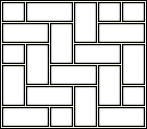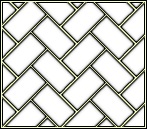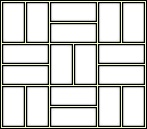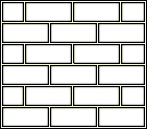Block paving

Introduction to block paving
Block paving is available using a variety of materials depending on what finished look you prefer. Your main consideration when choosing your block paving design style ideally should fit into your surroundings and what you intend to use it for.
Your overall look is down to personal choice as there are many patterns to choose from.
The popular finished block paving designs are as followed:

90º Herringbone

45º Herringbone

Basketweave

Halfbond
Herringbone block paving style are ideal for both driveway and paths. Basketweave block paving style is only suitable for paths. Halfbond can be used for driveways but is only really suitable for driveway in one orientation. If you plan to do regular u-turn on your driveway then Herringbone block paving style should be used over Halfbond block paving style.
Ground preparation work
Good preparation work of the ground prior to laying the block paving is paramount.
Firstly the land needs to be stripped and the depth of the dig to approximately 200mm below finished ground level.
To reduce the chance of weeds and other foreign bodies penetrating the finished block paving a membrane is laid. A type 1 hardcore is laid on top of this membrane and then compacted using a wacker-plate. This process is done in layers depending on how much depth has to be made up. This is vital to prevent the block paving from sinking into the ground at a later date.
The next stage involves laying a bed of screed sand which is levelled out ready for the blocks to be laid. Once the design is finished the whole area is compacted using a wacker-plate. Washed (fine) sand is then brushed into the gaps of the blocks to bind them together. The whole area is then compacted using a wacker-plate once again to allow any washed sand to dislodge and fall deeper into the gap. Finally washed sand is brushed into any remaining gaps.
Block paving aftercare
Moss, grass and weed can still grow between the gaps of your block paving despite being perfectly laid. This is caused by seeds being carried by wind or dropped from passing birds. A sealant can be applied a few months after your block paving had been laid in order to prevent this from occuring.
Photograph of block paving carried out by us
Services
News related to Block paving
Sub-contracted for bricklaying and block paving work in Sheffield City Center
Commenced construction on a radius wall in Sheffield Town centre July 2009. The boundary wall completed was approximately 18 metres long. For strength and because of the length was built as two 100mm walls tied ...

















